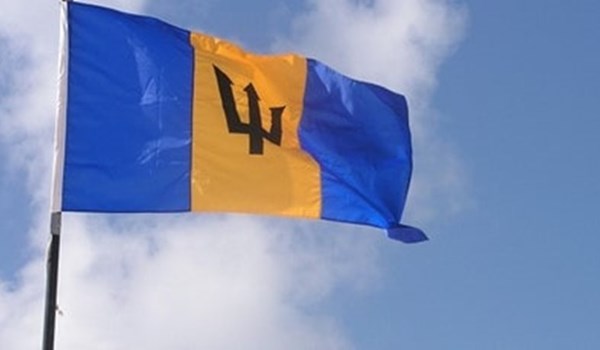Jurisdictions
Regions
Industry Sectors
26/07/22
BARBADOS: Authorities working on meeting FATF requirements.

As published on barbadostoday.bb, Tuesday 26 July, 2022.
While concerned that Barbados remains on the grey list of the Financial Action Task Force (FATF), officials of the Barbados International Business Association (BIBA) are confident that this country will continue to meet its obligations.
Despite extensive efforts by local officials to respond to areas of concern identified by the FATF, Barbados has again failed to convince the grouping that the island should be removed from its so-called grey list for anti-money laundering and countering the financing of terrorism (AML/CFT).
The international watchdog agency recently announced that it was keeping Barbados on the list of countries that will be under “increased monitoring”, though the country was working to address strategic deficiencies in its regimes to counter money laundering.
Commenting on the development, Jamar Arthur-Selman, BIBA President and General Manager of Centralis (Barbados), told Barbados TODAY it was always a concern when the country was placed on any lists. However, he said he was confident that authorities were doing what was necessary to meet the changing requirements.
“It is always concerning to be in a position where the country is on any black or grey list of any kind. However, there would only be cause for true concern if we felt that the country had no possible way to address the deficiencies noted by the FATF. On the contrary, we have been assured by the responsible authorities that their efforts to satisfy all requirements have been intensified and BIBA has seen the activity in many areas already,” said Arthur-Selman.
“BIBA and our members continue to cooperate with the Attorney General’s Office, the Financial Services Commission and all necessary regulators and relevant authorities to assist in the process of meeting our obligations whenever necessary to do so,” he said.
In its recent statement, the FATF lauded the island for its progress, but flagged several areas it wanted Barbados to address promptly including strengthening the effectiveness of its AML/CFT regime by establishing and resourcing a new compliance unit under its AML authority responsible for Designated Non-Financial Business and Professions supervision.
Barbados is to also demonstrate that authorities have access to the beneficial ownership information regarding legal arrangements and reduce the backlog of criminal cases, including money laundering prosecutions.
FATF said the country must demonstrate that money laundering investigations and prosecutions are in line with the country’s risk profile and result in sanctions, when appropriate and provide statistics or case studies demonstrating a reduction of any backlog of cases as well as further pursue confiscation in money laundering cases, including by seeking assistance from foreign counterparts.
The FATF also encouraged Barbados to continue to implement its action plan to address the suggested strategic deficiencies as soon as possible as all deadlines have now expired.
As part of the aim of the FATF to deter and prevent the misuse of companies, trusts, foundations and other types of legal persons and legal arrangements from engaging in money laundering, corruption and other illegal activities, countries are required to meet certain standards on transparency and beneficial ownership.
Arthur-Selman told Barbados TODAY he was satisfied that the areas identified by FATF were being addressed by authorities.
“Strides have definitely been made since Barbados was placed on the grey list in addressing many of the areas of weakness in its AML/CFT regime and we are pleased that the FATF acknowledged this when it identified only four areas of strategic deficiencies that Barbados needs to further address,” said Arthur-Selman.
“We have been assured by the authorities that these deficiencies continue to be addressed and that representations, with supporting data, have already been made in all four areas and new initiatives are underway to further address these matters. What we understand is most crucial now is further transparency by the FATF in its expectations and continued meaningful engagement with Barbados’ representatives,” he said.
“We must, however, always recognize that there is often very little time between assessments for the impact of the work being done to reach a level that the FATF may be satisfied. Therefore, not in all cases is it a matter of being behind in implementation but having limited time for the fruits of the relevant authorities’ labour to bear before being asked for harvest,” he said.
He explained that it was possible to remain off certain lists by maintaining a level of operation and standards that satisfied international standards, which Barbados had done before.
He said it was a matter of Barbados reaching a point of satisfaction of the requirements to match its risk profile and be able to maintain it within the timelines and expectations of the FATF and others.
“In some instances, this is very possible and perhaps the FATF may be one of these. However, being realistic, for others, the constraints of small island developing states and the sometimes impractical requests and lack of transparency by those creating these lists continue to make it an arduous task to say the least,” he said.
Recently, Kevin Hunte, Director of International Business of the International Business Unit (IBU) in the Ministry of Business Development, reported that a policy proposal was currently before Government for consideration for the establishment of a beneficial ownership register.
This, he said, is expected to result in more timely, accurate and up-to-date information to satisfy international requirements regarding transparency and beneficial ownership.



